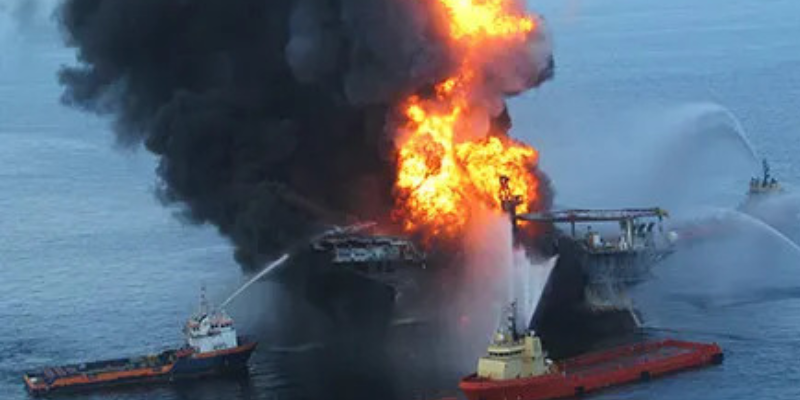The Trans Niger pipeline explosion in Rivers State is a harsh reminder of how industrial disasters are linked to climate change. This tragic event caused massive destruction, displacing communities and polluting the environment. Beyond the immediate damage, the explosion has significant long-term effects on climate, contributing to global warming and environmental degradation.
This article will break down the impact of the explosion in simple terms, making it easy for young people to understand why such incidents are dangerous not just for the affected communities but for the planet as a whole.
What Happened?
The Trans Niger pipeline is one of Nigeria’s major oil transport systems, responsible for moving crude oil across the country. However, a catastrophic explosion recently rocked the pipeline, leading to a massive fire. The impact was devastating:
- People lost their lives and many were injured.
- Homes and businesses were destroyed.
- Large amounts of crude oil spilled into the land and water.
While the immediate effects were heartbreaking, the long-term environmental consequences are even more worrying. This disaster didn’t just affect the people nearby it sent shockwaves through nature and the atmosphere, worsening climate change.
How Did the Explosion Affect the Environment?
Whenever there’s an oil spill or explosion, the surrounding environment suffers. Here’s how this particular incident harmed nature:
1. Land Pollution
Oil spills seep into the soil, making it toxic. This means:
- Crops may not grow properly.
- Farmers lose their source of food and income.
- The land takes years to recover.
2. Water Contamination
Crude oil from the pipeline flowed into nearby rivers and streams, poisoning the water. This is dangerous because:
- Fish and other aquatic creatures die from the pollution.
- Local communities lose their main source of clean drinking water.
- The water becomes unsafe for cooking, bathing, and farming.
3. Air Pollution
The explosion caused a massive fire, sending thick black smoke into the sky. This smoke contained toxic gases that:
- Polluted the air, making it difficult to breathe.
- Increased the risk of respiratory diseases.
- Contributed to climate change by releasing harmful gases.
How Does This Affect Climate Change?
Climate change happens when harmful gases build up in the atmosphere, trapping heat and making the Earth warmer. Unfortunately, the Trans Niger pipeline explosion released large amounts of these gases. Here’s how:
1. Greenhouse Gas Emissions
When oil burns, it releases two major gases:
- Carbon dioxide (CO₂): A gas that traps heat in the atmosphere, making the Earth hotter.
- Methane (CH₄): A gas even more powerful than CO₂ in causing global warming.
By adding more of these gases into the air, the explosion worsened the climate crisis.
2. Black Carbon and Airborne Particles
The thick smoke from the fire contained black carbon, a tiny particle that absorbs sunlight and makes the air hotter. When black carbon lands on snow or ice, it causes them to melt faster, contributing to rising sea levels and extreme weather.
3. Damage to Natural Carbon Absorbers
Nature has a way of balancing CO₂ levels through trees, plants, and soil. But when an oil spill happens:
- Plants die, meaning they can no longer absorb CO₂.
- Microorganisms in the soil that help reduce pollution are wiped out.
- Water bodies become polluted, harming ecosystems that help regulate climate.
All these effects make it harder for nature to fight climate change.
The Bigger Picture: What This Means for Nigeria and the World
This explosion isn’t an isolated case. Nigeria has suffered many oil-related disasters over the years. These incidents show that:
- Pipeline safety measures are weak. Many oil pipelines are old and not well-maintained, making accidents more likely.
- Fossil fuels are a major risk. As long as oil remains Nigeria’s main energy source, these disasters will keep happening.
- The environment is paying the price. Every spill, explosion, or fire adds more pollution to the planet, speeding up climate change.
To prevent such disasters in the future, urgent action is needed.
What Needs to Change?
To protect people and the planet, Nigeria and the world must take serious steps to prevent oil-related disasters. Here’s what can be done:
1. Stricter Pipeline Regulations
Oil companies must be held accountable for maintaining pipelines properly. Governments should:
- Conduct regular safety inspections.
- Punish companies that neglect environmental safety.
- Ensure oil spills are cleaned up quickly and effectively.
2. Shift Towards Renewable Energy
Nigeria and other oil-dependent countries need to explore cleaner energy sources such as:
- Solar power – Energy from the sun.
- Wind power – Energy from the wind.
- Hydropower – Energy from water.
Relying on these alternatives can reduce oil spills, explosions, and climate-related disasters.
- Help Communities Recover
- Local communities affected by oil pollution should receive:
- Compensation for lost homes, farms, and water sources.
- Training on alternative livelihoods like fishing, farming, or green energy jobs.
- Support in restoring their environment, such as replanting trees and cleaning up polluted areas.
Conclusion
The Trans Niger pipeline explosion is a warning sign. It shows how dangerous oil-related disasters can be not just for the people living nearby, but for the entire planet. The oil spill polluted the land, water, and air, while the fire released harmful gases that worsened climate change.
If Nigeria and the world continue relying on fossil fuels without proper safety measures, such disasters will keep happening. It’s time for stronger pipeline regulations, a move towards renewable energy, and better support for affected communities.
Every person has a role to play in protecting the environment. By spreading awareness, supporting green initiatives, and pushing for better policies, we can help create a cleaner, safer, and more sustainable future.



